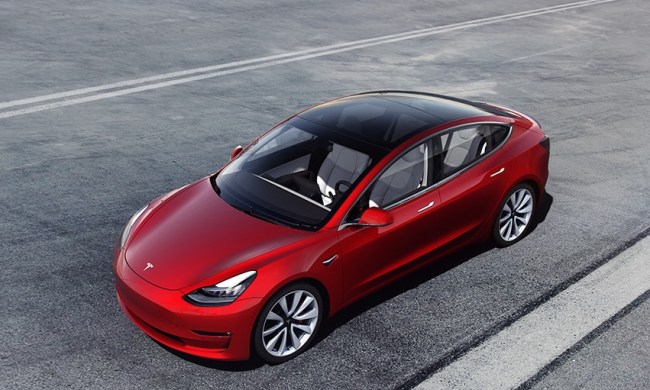Nuro has received the first-ever permit allowing it to commercially operate self-driving delivery vehicles in California.
Granted by the state’s Department of Motor Vehicles (DMV), the green light means the Silicon Valley-based company will be able to start charging customers for its delivery services using its self-driving vehicles.
The decision comes eight months after the DMV gave Nuro permission to test its electric R2 delivery vehicle on public roads. Trials have also taken place in Texas and Arizona.
Responding to this week’s news, Nuro chief legal and policy officer David Estrada said in an online post that his team will soon announce the details of its first-ever commercial deployment involving “an established partner” in the Bay Area.
The service will begin with Nuro’s fleet of Prius vehicles in fully autonomous mode, followed by its custom-designed electric R2 vehicles, Estrada said.
Nuro’s R2 autonomous vehicle carries goods in two separate compartments and has no space for passengers. It comes with all of the usual sensors, cameras, lidar, and radar technology to ensure it can safely reach its destination before returning to base. The vehicle features gull-wing cargo doors reminiscent of the DeLorean automobile made famous by Back to the Future, though the R2’s top speed of 25 mph means Nuro’s vehicle moves along at a rather more leisurely pace.
Customers who place an order that uses the R2 will be able to track the vehicle via an app as it makes its way toward their home. Upon arrival, an alert will appear on the customer’s phone prompting them to pop outside to collect their order. This involves simply entering a code number on the R2’s touchscreen to unlock the appropriate compartment.
Estrada spelled out his vision for Nuro and similar services, insisting that driverless delivery will have “a big impact for Californians in the coming years,” adding, “We’re excited to see these benefits grow into the everyday lives of the people in our communities, in the places we also call home.”
Nuro was co-founded by Dave Ferguson and Jiajun Zhu in 2016, with both gaining crucial experience from their time with Google’s autonomous-car unit — now Waymo — in its early days.


